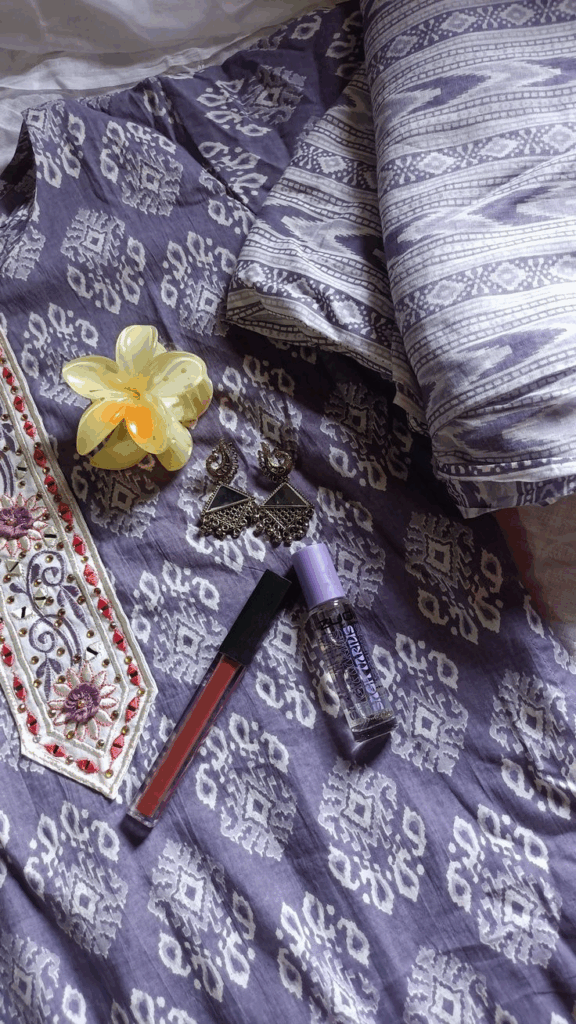
Opening Reflection
In the busy hustle of South Asian households, where tasks like cleaning, cooking, and taking care of family are often considered part of daily routine, it’s easy to forget the power of presence. For many women, daily chores are not just tasks, but an endless cycle of responsibility. But what if we could shift our perspective? What if the act of sweeping the floor or preparing a meal could become an opportunity for mindfulness, joy, and self-care?
This post delves into the idea that self-care doesn’t always have to come in the form of grand gestures—sometimes, it’s found in the simplicity of daily routines.
The Burden of Household Chores
Household duties in South Asian homes are often seen as a woman’s responsibility — a part of the cultural fabric that keeps the family functioning. This can include:
- Cleaning (Jhadu Pocha)
- Cooking for the family
- Washing clothes
- Caring for children or elderly relatives
While these tasks are necessary and contribute greatly to the household, they can often become overwhelming, leaving little space for rest or self-care. The problem arises when these actions are viewed only as chores, not as opportunities for personal well-being.
Mindfulness in Everyday Tasks
The concept of mindfulness — being fully present and aware of the moment without judgment — can be incorporated into even the most mundane activities. Here’s how:
1. Jhadu Pocha (Sweeping and Mopping):
Rather than rushing through cleaning to get it done, focus on the physical movements and the repetitive nature of sweeping. Feel the motion of the broom, listen to the sound of the brush against the floor, and take a deep breath. Let this moment ground you.
2. Cooking:
Take time to appreciate the aromas and colors of the ingredients as you chop vegetables or stir the pot. Use this time to connect with the nourishment you’re providing, not just physically but emotionally. Feel gratitude for the food and the act of cooking.
3. Folding Laundry:
Instead of seeing laundry as a tedious task, pay attention to the textures of the clothes, the colors, and the rhythm of folding. It’s a small act of care for yourself and the family, and it can be a meditative exercise when done with intention.
Stats: The Impact of Mindfulness on Mental Health
📊 Survey Results (South Asian Women, 2024)
- 55% of South Asian women find daily household chores overwhelming
- 42% report feeling mentally drained after completing household tasks
- 71% say that incorporating mindfulness into daily tasks has helped reduce stress
- 63% use cooking as a form of therapy and relaxation
Real Voices
“When I take my time to clean, I focus on how it helps me reset mentally. It’s no longer just about tidying up the house — it’s about clearing my mind too.”
— Suman, 34, India
“Cooking has always been a source of stress for me. But now, I’ve started to think of it as a way to show love — not just to my family, but to myself.”
— Ayesha, 27, USA
✅ Mindful Chores Checklist
| Task | Mindfulness Practice | Tried It? ✅ |
|---|---|---|
| Sweeping | Focus on the sound and motion | ____ |
| Mopping | Breathe deeply and feel grounded | ____ |
| Cooking | Appreciate the textures and smells | ____ |
| Folding Laundry | Take time to enjoy the rhythm | ____ |
| Washing Dishes | Notice the temperature and movement of water | ____ |
📊 Bar Chart: The Impact of Mindfulness on Mental Health
| Task Type | % of Women Who Report Reduced Stress |
|---|---|
| Cooking | 71% |
| Cleaning | 55% |
| Laundry | 42% |
Quote to Carry With You
“The simplest tasks hold the most power when done with presence — and the joy of being in the moment is the best kind of self-care.”
No Responses